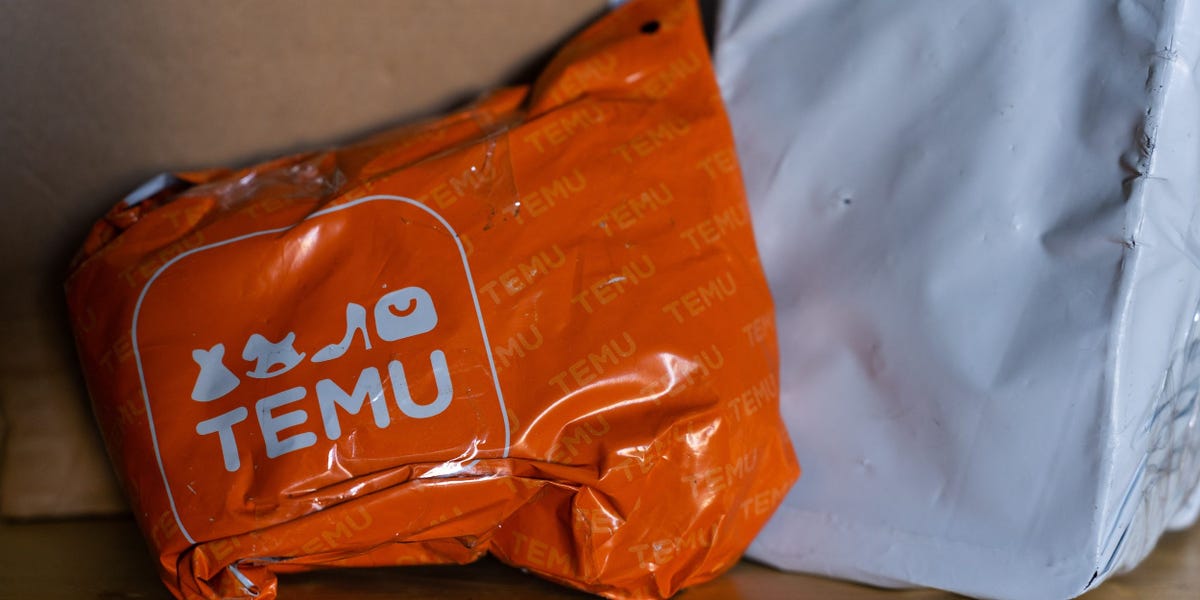Temu is expected to open its marketplace to sellers in the US and Europe in the coming weeks, and US-based Amazon sellers are telling Business Insider they’re eager to launch their businesses on the platform.
Temu, which is owned by Chinese retail giant Pinduoduo Holdings, has so far operated using a “managed marketplace” model that includes having manufacturers consolidate their inventory into warehouses in China and then ship to consumers across borders from there. Temu manages product listings, pricing, and shipping logistics. The result has been longer shipping times — but also lower prices — than their e-commerce competitors.
However, the expansion into new markets puts a twist on that model and would have US sellers handle fulfillment and logistics themselves. The expansion could come as soon as March 15, according to Chinese media reports.
A Temu spokesperson confirmed to BI that the company plans to expand to US and European sellers but said that many of the details are still being finalized.
Opening to US and Europe-based merchants comes with a couple of advantages for Temu.
“In addition to shorter delivery times, the new arrangement helps Temu put bulkier, higher priced SKUs onto the platform, and reduces its exposure to volatility in long-haul shipping costs,” Bernstein analysts wrote in a research note published Monday.
“Most merchants we’ve spoken to have sounded constructive,” they added.
Industry experts expect the first merchants to make use of the new model will likely be Chinese sellers who have warehouse operations in the US. Many of them also sell on Amazon and use Amazon’s fulfillment services.
“What they sell is exactly what is being sold on Temu already,” Juozas Kaziukėnas, founder and CEO of e-commerce intelligence firm Marketplace Pulse, said.
“Temu seems to have already started the recruitment of sellers in China,” he added, citing Chinese media reports about Temu’s attendance at recent seller events in China.
Sellers are open to trying any new channel where their customers are shopping
Jennifer Ortakales Dawkins/Insider
Some American-grown brands say they’re also excited to get on the platform, especially as they’ve seen Temu quickly take off in the US.
“I take the stance of always giving new channels a try, so I don’t think I would mind listing at least some of our products on there, if anything at least to be ahead of the game when it comes to knowing where our customers are and how their purchasing behaviors are changing over time,” said Robert Gomez, whose brand Kaffe sells coffee grinders on Amazon, Shopify, Target’s and Home Depot’s websites, and in Walmart stores.
Molson Hart is another e-commerce entrepreneur who sells educational toys on Amazon through his company, Viahart.
“It’s really hard for us to get sales off of Amazon, and with the amount of advertising Temu is putting into their platform, it might be a good opportunity for us to diversify our sales from the Amazon platform,” he said. “The more competition there is for sellers — and consumers — the better prices and service will be for everyone in the consumer product ecosystem.”
Sellers could take advantage of Temu’s reputation for lower prices and sell things more cheaply than they might be able to on Amazon. Reuters reported last June that Amazon was not including Temu in its pricing-check algorithm — which scans competitors’ sites to ensure Amazon’s prices are fair — because Temu did not meet its quality standards.
“We’re always evolving our approach and considering competitors that customers find to be relevant, which is a standard practice in retail,” Amazon spokesperson Maria Boschetti said to BI.
However, Temu’s low prices and sometimes questionable product quality could also be a turn-off to some sellers.
“It’s like an online dollar store,” Mikey Kim, founder of natural-candle brand Hemlock Park, said to BI. “My brand is known for quality, which I believe is not a fit for Temu.”
Kaziukėnas said it would likely be difficult for Temu to attract established US brands, at least at first.
“This is going to be a multi-year experiment for Temu: Can it upgrade itself in the eyes of consumers for it to be able to attract different types of sellers and different types of brands?” Kaziukėnas said.
Temu has a ways to go before it can really compete with Amazon in terms of sales volume, but reports have indicated that Amazon has kept a close eye on the new player’s rapid growth.
The Information reported in February that Amazon has considered several changes, including lowering certain seller fees and compromising on shipping times, to incentivize sellers to keep their prices low and fend off potential competition from Temu and Shein, another China-linked e-commerce marketplace known for its low prices. Those changes have not been implemented, but in December, Amazon announced it would be lowering referral fees for low-priced apparel items.
“Our focus is always on how we can best support the growth and success of our selling partners, not on other companies,” Boschetti said. “We have been investing in the success of independent sellers for the past 23 years, and we continue to challenge ourselves to invent and support even greater success for sellers in the future.”
JADE GAO/Getty Images
Amazon sellers speaking with BI said they are similarly excited about trying out Shein. Some started hearing from Shein representatives last year, who said their success on Amazon would make them a great fit for Shein’s own marketplace.
Shein has also been making appearances on the e-commerce conference circuit this winter, hosting a booth at eTail West in Palm Springs in February and the Prosper Show in Las Vegas in March.
‘It’s the simplest, most direct approach to close the loophole once and for all’
Temu could also benefit from having more of its shipments come from within the US rather than abroad.
Along with Shein, Temu has faced growing pressure from US lawmakers over its use of de minimis shipments. De minimis is a provision of US customs law that allows importers to avoid paying duty and tax on shipments that are going to individual consumers and are worth less than $800 in total. These shipments also frequently avoid inspection by US Customs and Border Protection.
On Wednesday, US Representatives Earl Blumenauer, Neal Dunn, and Dan Bishop announced the formation of a new coalition to further push for de minimis reform. The coalition also includes several labor unions, law enforcement associations, business groups, and organizations representing families of people who have died due to the fentanyl crisis.
Rep. Blumenauer is one of a group of US lawmakers who have pushed for the de minimis loophole to be closed through legislation.
“The vast majority of these shipments are coming from China. They are uninspected, they don’t pay any tariffs. We know for a fact that many of these products are made with forced labor, intellectual property theft, and do not meet our consumer safety standards,” Rep. Blumenauer said during a press conference announcing the coalition on Wednesday.
“The bill is not the end of the struggle, however, but it is an important beginning. It’s the simplest, most direct approach to close the loophole once and for all.”
If more sellers are shipping to customers domestically within the US, any potential changes to the de minimis policy could mean less risk for Temu.
In January, spokespeople for Temu and Shein said that they have not relied on de minimis to grow and that they would support reforms to the provision if they are fair.
Got a tip? Contact this reporter at mstone@businessinsider.com, mlstone@protonmail.com, or on the secure messaging app Signal at (646) 889-2143 using a non-work phone.




